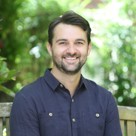
Member profile: Dr Ben Bravery
21 May 2025
Profile
Meet Dr Ben Bravery, a Stage Three trainee working as Chief Psychiatry Registrar at St Vincent’s Hospital in Sydney.
1) Tell us a little bit about yourself
I am a psychiatry trainee based in Sydney where I live with my wife and son. I’m from Queensland and have lived in Darwin, Canberra, Melbourne, Beijing, Doha and London. Prior to medicine I was a zoologist and science communicator, passionate about animal behaviour and conservation. I worked for four years in China, first at the national science agency, and then started my own business helping promote local science.
2) What inspired you to choose a career in psychiatry?
In my second year at medical school, I was drawn to the psychiatric model and its focus on the whole person. It felt like a good way to interact with patients and to make decisions together. I also like that psychiatry encourages us to think broadly about people, our colleagues and the systems and environments that impact them.
3) You have an incredible story; can you tell us more about the journey that led to your book ‘The Patient Doctor’?
I was originally a zoologist and science communicator and became a doctor after a stage 3 bowel cancer diagnosis. Experiencing illness firsthand, shaped my experience at medical school, and continues to shape my work as a doctor. I saw connections between aspects of the healthcare system that frustrate patients, and that also frustrate doctors. My memoir is about bridging the divide between patient and doctor, because we are stronger together.
4) How has your experience as a former patient shaped what it means to you to be a doctor today?
I’m lucky because my experience means I can advocate for quality patients and human-centred healthcare at two levels. Firstly, when working with patients and colleagues during my training. Secondly, because of the book and my commitment to calling for system change, I have had the opportunity to speak with groups of doctors, pharmacists, social workers, dentists, health districts, private hospitals and insurers. This has taken me across the country where I have been able to learn about amazing improvement programs being actioned all over the place. I have also spoken in New Zealand and Singapore and will later this year head to the UK to talk about the importance of empathy and advocacy in health care.
5) What is one piece of advice that has helped you throughout your career thus far?
To pace myself, but to keep a set of goals and the bigger picture in mind.
6) How do you balance work, health and life at this stage in your career?
Like all things in life, this is hit and miss. I try to get good sleep (having a child forces one to prioritise this!), eat plants, and avoid being sedentary.
In terms of training, I set out an assessment plan so that I could complete everything by my first year of advanced training.
Having had major illness means it can be easier for me to prioritise the things that matter, like spending time with loved ones. For example, when my son was born, I took a full year off to care for him when my wife returned to work. At a practical level, I have a good GP and keep on top of my cancer surveillance check-ups!
More news & views
 19 February 2026
19 February 2026
Dr Sasha Jones is a psychiatry registrar based in the Northern Territory who believes some of the mo...
 20 November 2025
20 November 2025
Meet retired Fellow, Dr Josephine Topp. Her psychiatry career began at Austin Health, specialising i...
 19 November 2025
19 November 2025
Professor Kane Vellar is an inaugural Rural Champion, representing Monash Modified (MM) regions 5–7.